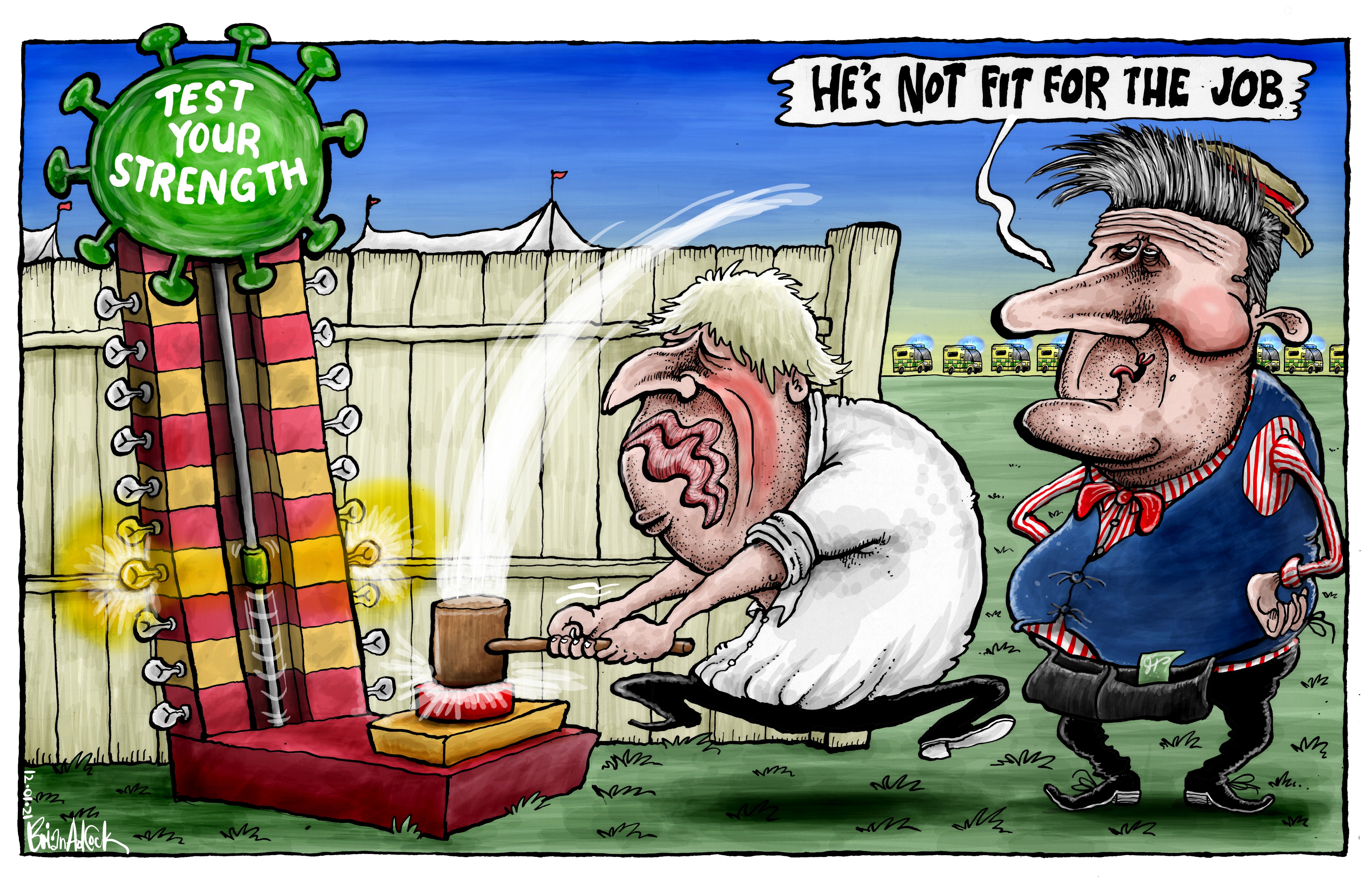With a characteristic flourish, Boris Johnson repeatedly referred to the coronavirus vaccines as the “distant bugle of the scientific cavalry coming over the brow of the hill” when they were being developed last year.
Now that two battalions are at the country’s disposal, and another on the way, Mr Johnson and his ministers are naturally keen to trumpet what they call the “historic” vaccines delivery plan unveiled by the health secretary, Matt Hancock. While publishing daily figures on the number of people immunised is welcome, the government’s transparency has its limits: it refuses to say how many doses it currently has.
It makes sense to promote the vaccine, in order to boost the take-up, and explain how and when people will be able to receive it. Yet on this occasion, the prime minister’s trademark “boosterism” risks becoming a distraction from the more immediate and urgent task of driving down the number of cases to ease the extreme pressure on the hospitals perilously close to their tipping point.
Ministers understandably want to highlight the vaccine to show the public that after 10 months of restrictions, there is finally some light at the end of the tunnel. Yet they give the impression of hoping such a “feelgood factor” will also bring political dividends for a government which has often been slow to take big decisions and therefore behind the curve.
Ministers have been quick to point out that the UK has vaccinated more people than the rest of Europe combined. Mr Johnson gave the game away last week; at his first press conference after announcing England’s third lockdown, he began: “I want to update everybody about vaccines.”
Publicising the biggest vaccination programme in British history at the same time as a “stay at home” edict is a difficult communications task, but not an impossible one. But Mr Johnson’s healthy appetite for announcing good news is matched by an aversion to delivering bad tidings. This has skewed the government’s communications – and may have unintentionally undermined the vital health message by encouraging public complacency about the need to stick to the rules.
Ministers should have devoted slightly less time to talking up the vaccine and rather more to explaining the restrictions and why they are necessary. When even Downing Street struggles to explain whether people are allowed to sit on a park bench, it is little wonder the public is confused, which might wrongly provide some people with an excuse for ignoring the rules.
Not before time, Mr Johnson acknowledged yesterday his concern about the “degree of false confidence, false complacency” stemming from the vaccine rollout. He said: “This is a very perilous moment because everybody can sense that the vaccine is coming in and they can see that the UK is vaccinating large numbers of those that need it most.”
The prime minister believes that enforcing the current restrictions is more important than imposing new ones. But it would be a much more valid approach if the government corrected the balance in its own communications, by resisting the temptation to focus so heavily on the vaccine rather than the growing health emergency.




Join our commenting forum
Join thought-provoking conversations, follow other Independent readers and see their replies
Comments